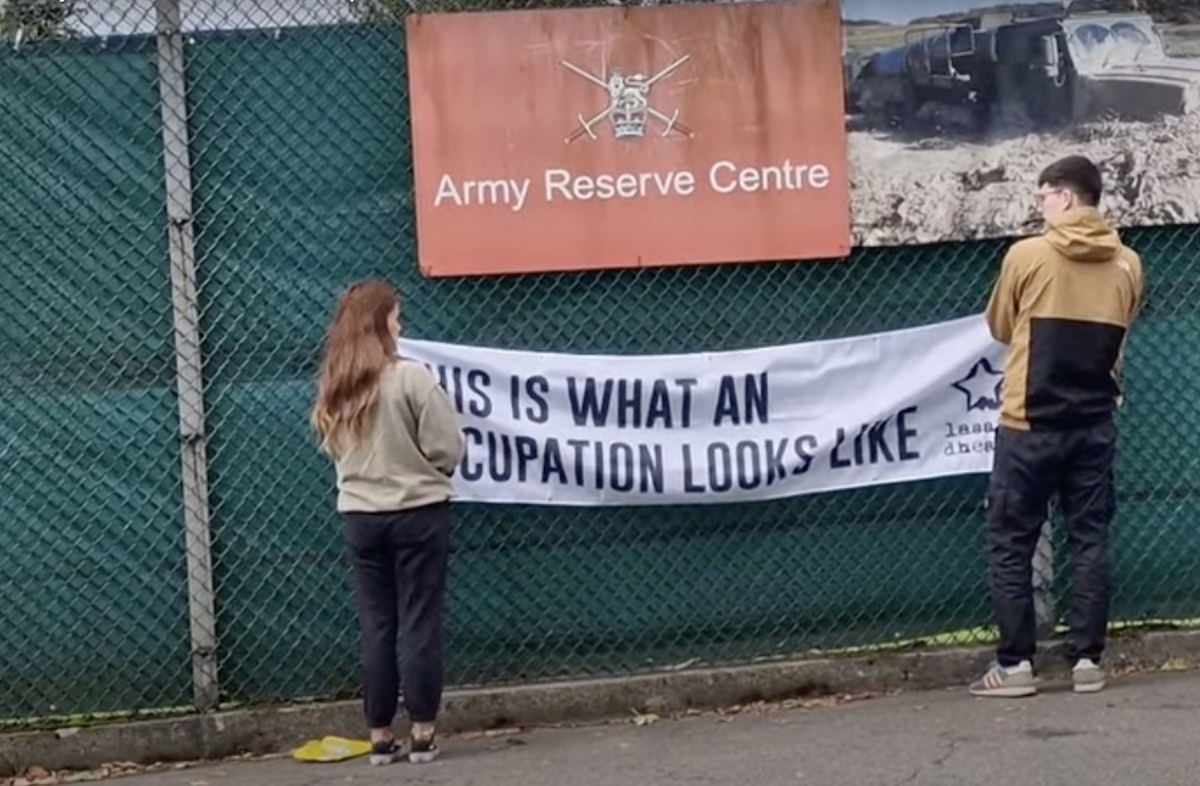
A British Army Reserve centre in the north of Ireland was the scene of a demonstration by Derry Lasair Dhearg activists last week “to highlight the ongoing presence of occupation forces” here.
A recent increase in British military activity in the northwest has seen sinister convoys of armoured vehicles moving from base to base. One of these is Derry’s Limavady Road facility, which is occupied by Britain’s ‘Royal Logistics Corps’.
Speaking outside the installation, Lasair Dhearg’s Lorcán Ó Duine said, “We’re here today outside a British Army Reserve centre in Derry, occupied Ireland.
“This particular Barracks is home to the Two One One Tanker Squadron, from One Five Two Regiment, of the Royal Logistics Core. It is the only dedicated Bulk Fuel Transport and Storage Regiment in the British Army. Operating a fleet of Close Support Tankers and Unit Supply Tankers, the Regiment has the capability to store and distribute bulk fuel anywhere in the world. That Regiment has deployed on operations in Iraq, Afghanistan and Ireland, where its presence continues to this day.”
“The British Army itself says that The Royal Logistic Corps ‘sustains Army and wider Defence activity, at home and overseas, as a core component of a global, integrated logistic enterprise’. According to their own propaganda, they are the backbone of the British military machine. They keep British army personnel marching, its helicopters flying, its vehicles moving and its tanks and guns firing.”
“This barracks is only one of a number of British military installations across the Six Counties, backed up by scores of military type barracks housing the PSNI, alongside more than 20,000 security personnel, many of them heavily armed, and trained in an assortment of military grade weaponry.”
Mr Ó Duine added, “The Good Friday Agreement did not remove British troops from Ireland, nor their military equipment. They remain here, ready to deploy at a moments notice on to Irish fields and Irish streets. And when those orders to deploy do come, as they have in the past, they will not come from the long corridors in Stormont, but from their paymasters in London.”
“This is not a normal political situation that we are living in. This is what an occupation looks like.”
![[Irish Republican News]](https://republican-news.org/graphics/title_gifs/rn.gif)
![[Irish Republican News]](https://republican-news.org/graphics/title_gifs/harp.gif)

